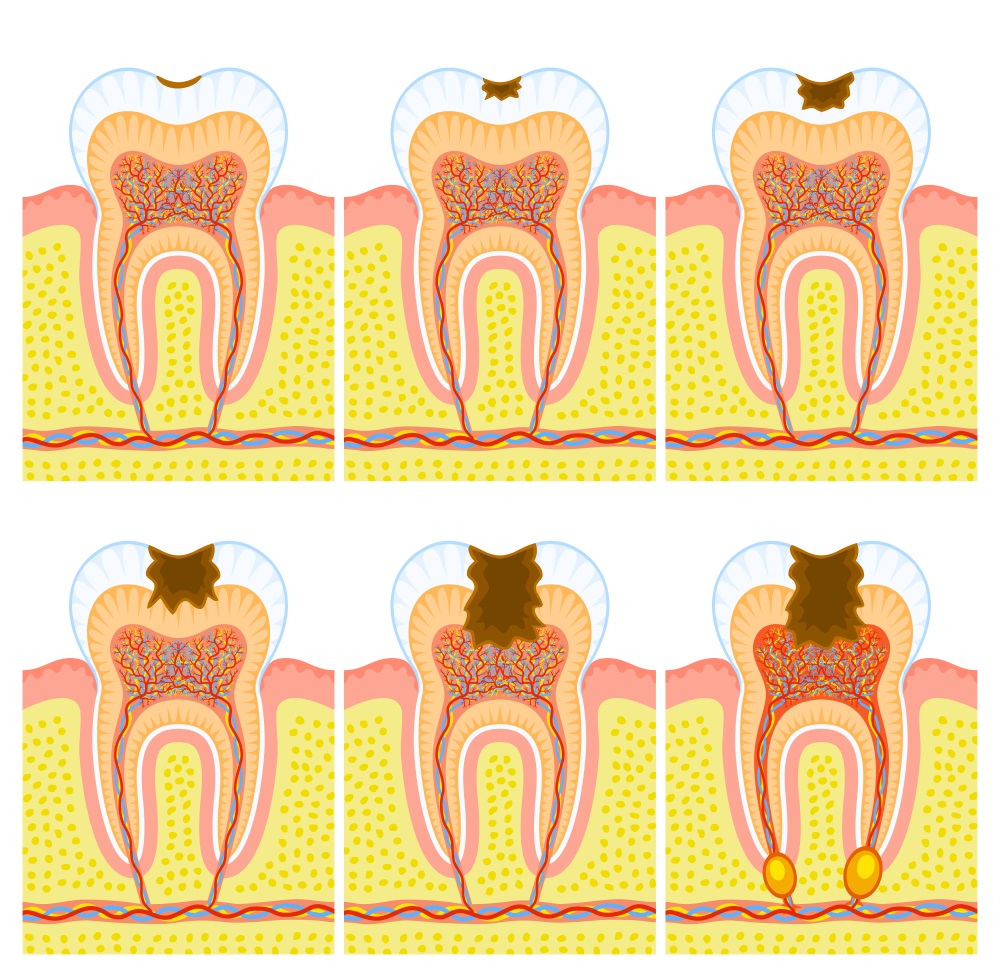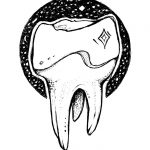4 Natural Tooth Decay Remedies—Do They Work?
In the age of self-help and Google to diagnose ourselves, we can sometimes fall into the trap of thinking we don’t need to visit a medical professional to seek help.
And while there are plenty of times we can use at-home remedies to bridge the time between injury and appointment, the truth is that a professional opinion is necessary more often than we’d like to admit.
But…what about something that’s not an emergency? Something that’s a nuisance, but bearable—like tooth decay? If you’re short for time and stressing about getting to the dentist, but are pretty sure you have a cavity, are there things that you can do at home to stop the decay or even reverse the damage?
Keep reading to learn more about the most popular do-it-yourself tooth decay treatments. And we won’t stop there. Wrap these home remedies up with the vital question: can you take care of tooth decay yourself?
- Oil pulling
A couple years ago, oil pulling made its way around the internet as a way to kill bacteria in the mouth and improve overall dental health. This theory dates back to} ancient India and relies on sesame or coconut oil that is swished in the mouth for 10-15 minutes before spitting in out.
The way oil pulling works is simple—when you swish the oil around your mouth, the bacteria get swept away and dissolve in the liquid oil. In addition, oil pulling has been shown to reduce both plaque and gingivitis. And finally, some advocates of oil pulling tout its capacity to reverse cavities and tooth decay.
- Eating licorice root
The flavor of licorice has a polarizing effect—you either love it or hate it. Rarely do you find someone who is ambivalent.
If you are in the “love it” camp, you might have considered nibbling on dried licorice root. This is actually another ancient remedy that was originally used by the Chinese, and has shown to be an effective agent in fighting off the bacteria that causes tooth decay. The two compounds found in dried licorice root are effective antibacterial substances that can prevent the growth several major bacteria connected with cavities and gum disease.
Before relying on licorice root to reverse tooth decay, however, health professional remind patients that it should be used with caution and only after consulting with a health care professional since it can have serious side effects and negative interactions with prescription medications.
- Aloe vera
You might be most familiar with aloe vera when it comes to treating sunburns. But the aloe vera plant has a long history of healing power that goes well past the beach. Its ability to heal burns and cuts and soothe pain has been documented as far back as the 10th century. Aloe vera has been used to soothe pain in the mouth, too, in addition to fight off the bacteria that cause cavities.
While early research has shown aloe vera as effective in keeping your mouth clean, experts warn that you need to be careful since aloe vera gels are not all created equally. There are vast differences in how commercial aloe vera products are prepared. To be effective medicinally, aloe vera extracts must come from the center of the aloe vera plant. And if the extract is filtered or heated too strongly during the manufacturing process, beneficial compounds are destroyed or weakened, making the product nearly useless. If used improperly, you may actually cause more damage to your teeth.
- Remineralization of the teeth
Remineralization is the natural repair process of teeth. The saliva in the mouth acts much like the bloodstream in our bodies, transporting various organisms around the different biofilm communities.
What’s that mean? It means your saliva deposits minerals, like calcium, onto your teeth. These minerals bond with the enamel and repair deficiencies. Under ideal oral circumstances, minerals like calcium and phosphorus are deposited onto the teeth to keep them strong. As saliva comes in contact with your teeth, there’s an exchange of minerals, and these minerals then bond with the enamel. This is not an overnight process, however. It can take months for a single deficiency to heal this way.
Ok, does any of this actually work?
While the internet is full of testimonials of people who have reversed tooth decay, do professionals believe these remedies actually work?
Cavities can affect people of all ages—in fact 90% of adults are walking around with tooth decay at this moment, and one in four people currently have an untreated cavity. Cavities are a result of plaque and not cleaning your teeth well. When the plaque attacks the enamel, it eventually wears it down, leaving your tooth vulnerable to bacteria and acid. If left unresolved, the bacteria move through the layers of your teeth, causing decay at every level.
Is there a point of no return? Is there tooth decay that’s less threatening, that professionals believe can be revered naturally? This is a bit of a loaded question. When a tooth is exposed to acid frequently, the repeated cycles of acid attacks cause the enamel to continue to lose minerals. Tooth decay can be stopped or reversed at this point. Enamel can repair itself by using minerals from saliva and fluoride from toothpaste or other sources. However, if the decay continues and the enamel becomes destroyed, a cavity will form. At that point, only a dentist can repair a cavity with a filling.
If you are concerned that you have a cavity or if you’re beginning to notice tooth decay, it’s of the utmost importance to visit your dentist. No natural remedy can wholly reverse decay. If left untreated, tooth decay can lead to tooth loss. Tooth decay can also lead to gum disease. And if bad bacteria infiltrate your gum line (that has already been weakened by plaque), it can affect your jaw bones.
And remember, unlike a cavity that can be painful, many times gum disease can go unnoticed. By the time it’s identified, it could be too late to save the tooth. Since gum disease can sneak up on you, it is important to look out for symptoms that include: swollen gums, soreness, gum recession or abscessed gums.
In order to prevent more significant oral health issues, don’t rely on at-home remedies to solve tooth decay. Always seek professional care to protect your teeth.






